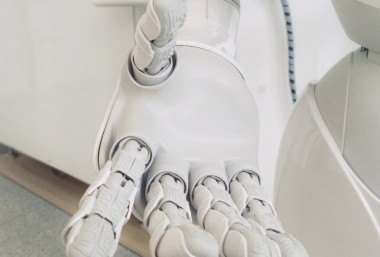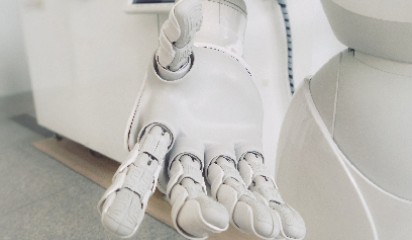The landmark Australian Federal Court decision in July 2021 (discussed in a previous article here), in which Australia became the first country to allow an artificial intelligence (AI) inventor has been overturned on appeal.
The ruling is centred around an AI system dubbed ‘DABUS’, developed by US scientist Dr Stephen Thaler. DABUS has ‘created’ two inventions without human intervention, one being an improved food or beverage container with fractal profiled walls.
Dr Thaler filed patent applications across multiple jurisdictions seeking to protect the inventions. The applications list DABUS as the sole inventor, as Dr Thaler asserts that DABUS created the claimed inventions.
The patent applications filed by Dr Thaler have been subsequently rejected in the US, the UK, Germany, and Europe, finding that an inventor for the purposes of assigning patent rights, must be a natural person. Because DABUS is not a natural person, it follows that it cannot be validly named as an inventor of an invention in a patent application in these jurisdictions.
The initial Federal Court decision
In July 2021, Australian Federal Court found that DABUS could be listed validly as an inventor, as there was nothing in the Australian Patents Act which “exclude[d] an inventor from being a non-human artificial intelligence device or system.”[1]
The Federal Court Judge accepted Dr Thaler’s arguments that the word ‘inventor’ as used in the Australian Patents Act 1990 should not be limited to individual human beings. The Judge explained that as “inventor” is not defined in the Act or Regulations, it must take its ordinary meaning. The Judge outlined that the word “inventor” is an agent noun, and as such, the agent can be a person or a thing.[2]
The Full Court overturns this decision
The Australian Commissioner of Patents appealed the initial decision to the Full Federal Court. The Full Court similarly sought to interpret the term “inventor” as used in the Australian Patents Act. The Full Court Judges agreed that “inventor” is not defined in the Australian Patents Act, and so must take its ordinary meaning.[3]
In this appeal case however, the ordinary meaning of “inventor” as used in the Patents Act was determined not by referring to a dictionary, but by considering the history of the laws relating to inventorship, including the Statute of Monopolies from 1624, earlier versions of the Australian Patents Act, and several cases decided under these older pieces of legislation.[4]
Based on the history of the laws relating to the use of the term “inventor”, the Full Court deemed an inventor to be “the person who makes or devises the process or product”.[5] Following this, the Full Court discussed that the laws so far have proceeded on the assumption that only a natural person could be an inventor.[6]
The Full Court noted that as no changes to the role of the inventor were made or recommended in creating the current Australian Patents Act, the term inventor should continue to be taken to mean a natural person. The Court suggested that this interpretation was supported by reference to the legislative history of the development of the law of patents in Australia.[7]
This decision to reject AI as an inventor aligns Australia’s position on AI inventorship with the recent New Zealand decision from January (discussed in a previous article here), and with the approaches taken elsewhere in the world.
Is this the end of DABUS in Australia?
Almost all the cases in corresponding jurisdictions have been appealed to a higher authority by Dr Thaler, so it seems likely that Dr Thaler will appeal this Full Federal Court decision again to the Australian High Court.
As this decision aligns the Australian approach with the rest of the World, including with the outcome of the Court of Appeal in the UK, it is unclear as to whether Dr Thaler will have any success in getting DABUS validly named as an inventor.
We will continue to monitor these cases as they play out and report any further interesting updates.
[1] Thaler v Commissioner of Patents [2021] FCA 879, at [64].
[2] n1 at [120].
[3] Commissioner of Patents v Thaler [2022] FCAFC 62, at [100].
[4] n3 at [87]-[98].
[5] n3 at [100].
[6] n3 at [115].
[7] n3 at [111].



















